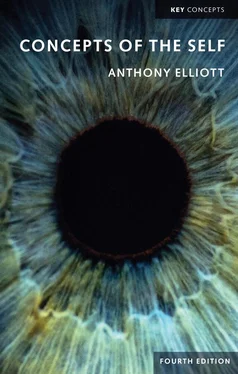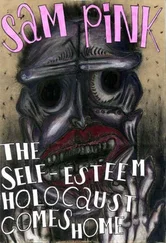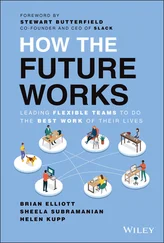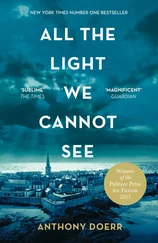A radio station to which I sometimes listen recently ran a competition called ‘The New You’. The competition was designed for ‘losers’: people with recurring difficulties in their personal and intimate lives. To enter, it was necessary to describe on radio some embarrassing private situation or circumstance – for instance, something going horribly wrong on a first date, or making a disconcerting gaffe at work. The act of discussing one’s personal embarrassment on radio placed the entrant in line for a play-off with other ‘losers’. The final winner – in this case the ‘grand loser’ – took home prizes with which to ‘remake his or her identity’. The winning prize consisted of a car, clothes, holiday and cash. I mention the radio competition because it offers an interesting example, I think, of some core links between popular culture and dominant conceptions of the self. For the defining outlook pervading the competition seemed to be that individuals are relatively free to experiment with their sense of identity. The self, in this view, becomes a matter of choice and risk. If you are willing to take identity risks – in this case, to tell a wider public about some aspect of your intimate life – then you do not have to be a loser. The radio competition was conducted, of course, in a spirit of light-heartedness. Yet it remains suggestive of deep cultural assumptions governing how we see the self: namely, that it is linked to role-playing, gender, choice, risk and, above all, the realm of consumption.
There are profound connections between the cultural assumptions informing ‘The New You’ competition and concepts of the self in the social sciences and humanities today. Selfhood is flexible, fractured, fragmented, decentred and brittle: such a conception of individual identity is probably the central outlook in current social and political thought. As the pace, intensity and complexity of contemporary culture accelerate, so too does the self become increasingly dispersed. Displaced and dislocated within the wider frame of globalization, the individual self turns increasingly to consumption, leisure and travel in order to give substance to everyday life. Or so some have forcefully argued. Many other authors, for a variety of reasons that we will examine, remain sceptical of such a portrait of the self. I shall discuss shortly the complex, and often unintended, ways in which the academic study of the self can, of itself, shape the cultural know-how and resources of the broader society. At this point it is worth briefly noting some core concepts of the self, some of them social science ones, which influence our everyday understandings of personal experience and individual identity.
In day-to-day life, we implicitly assume, and act on the basis, that individuals have a ‘sense of self’. We refer to people as ‘selves’; we recognize that most people, most of the time, deploy common-sense understandings of personal and social experience in order to manage the routine nature of their social worlds. We recognize that making sense of lives is often difficult, sometimes confusing, and that we are recurrently ambivalent about the coherence of our sense of personal identity. This mysterious terrain of our social and cultural life is, sociologically speaking, at the core of the arts of self. There is very little that goes on in daily social life that is not, in some very basic sense, conditioned, structured or dependent upon such fabrications of the self. The making, remaking and transformation of self-experience is fundamental to these arts. Things change; people change. Societal ambivalence and private torment lead us to see that identity is fluid, not fixed once and for all. In the terms of a key sociological tradition that will be discussed later, the self is a symbolic project that the individual actively and creatively forges. The self can be understood as a symbolic project in the sense that people routinely refer to their sense of identity as a guiding orientation to their lives, to other people and to the broader society. In this sense, individuals can be said to use practical knowledge as a means of producing and reproducing their defining sense of self.
Some critics reject the idea that practical knowledge is an essential characteristic of the self. They argue that, as sociologists or social critics, we needn’t concern ourselves with the intricate settings and assumptions that people bring to their presentations of self. Instead, the self can be studied as an object, without reference to the interpretations that individuals make about their own lives or their views about the wider social world. This is not a view I share. Indeed, one argument I develop throughout this book is that the self cannot be adequately studied in isolation from the interpretations that individuals make about themselves, others and society. Charles Taylor develops this point in an interesting fashion:
We are selves only in that certain issues matter for us. What I am as a self, my identity, is essentially defined by the way things have significance for me. And as has been widely discussed, these things have significance for me, and the issue of my identity is worked out, only through a language of interpretation which I have come to accept as a valid articulation of these issues. To ask what a person is, in abstraction from his or her self-interpretations, is to ask a fundamentally misguided question, one to which there couldn’t in principle be an answer. … We are not selves in the way that we are organisms, or we don’t have selves in the way we have hearts and livers. We are living beings with these organs quite independently of our self-understandings or interpretations, or the meanings things have for us. But we are only selves insofar as we move in a certain space of questions. ( Sources of the Self , Cambridge, MA: Harvard University Press, 1990, p. 34)
The self, on this view, is fashioned from individuals regularly appraising what it is they do (watching TV, going shopping, staying ‘in’) as a means of actually performing such activities. All selfhood has a ‘recursive’ or ‘reflexive’ quality to it. The self is recursive or reflexive to the degree that people constantly monitor, or watch, their own activities, thoughts or emotions as a means of generating these aspects of their identity. I will say something more about this in Chapter 1.
To emphasize the significance of an individual’s interpretations about their own sense of selfhood, however, is not to suggest that people can ever fully know all there is to know about the conditions of their lives. Many authors have argued that selfhood, in a sense, fails ; such accounts emphasize that the stories we tell about ourselves fall short of the deeper truth of lived experience. The founding father of psychoanalysis, Sigmund Freud, is perhaps the central figure here. Freud’s theory of a self dislocated and fractured by repressed desire suggests that self-experience is radically divided, or split, between conscious, rational thought on the one hand and unconscious desire, fantasies and memories on the other. The Freudian conception of unconscious desire and motivation has entered sociology, political science, feminism and philosophy in important ways, principally in connection with the study of the dividing line between presentations and pathologies of the self. Psychoanalytic theories of the self are rich and challenging not only because they dethrone common-sense understandings of individual intentions and reasoning; what is valuable in psychoanalytic concepts of the self is the stress on emotional dynamics of loss, longing and mourning.
This is not to say that the self is only fashioned, as it were, from the inside out. In forging a sense of self, individuals routinely draw from social influences, and maintain their sense of self through cultural resources. Social practices, cultural conventions and political relations are a constitutive backdrop for the staging of self-identity. But even this formulation is perhaps inadequate. The self is not simply ‘influenced’ by the external world, since the self cannot be set apart from the social, cultural, political and historical contexts in which it is embedded. Social processes in part constitute, and so in a sense are internal to, the self.
Читать дальше












